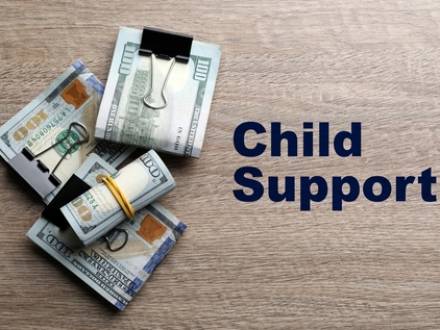LET US BE YOUR FAMILY'S ADVOCATE
Recent Blog Posts
Managing Large Student Loan Debt in a Texas Divorce
 Student loan debt has become an increasingly common issue in Texas divorces. As the cost of higher education continues to rise, many spouses enter marriage with significant student loan debt or take on loans during the marriage. Then, when couples divorce, there can be serious disagreements over who should be responsible for repayment. Understanding how Texas law treats student loan debt as part of marital property during divorce is essential for protecting your financial future.
Student loan debt has become an increasingly common issue in Texas divorces. As the cost of higher education continues to rise, many spouses enter marriage with significant student loan debt or take on loans during the marriage. Then, when couples divorce, there can be serious disagreements over who should be responsible for repayment. Understanding how Texas law treats student loan debt as part of marital property during divorce is essential for protecting your financial future.
Our Collin County, TX divorce attorneys are here to help you manage your student loan debt division and every other issue that comes up in your divorce.
How Does Texas Law Treat Student Loan Debt in Divorce?
Texas is a community property state, which means that all assets and debts acquired during the marriage are generally considered to be owned equally by both spouses. However, student loans can present unique challenges. Whether student loan debt is divided depends on when the loans were incurred and how the funds were used.
Is Divorce Harder for Younger or More Mature Couples?
 Divorce can of course be difficult at any age, but the challenges often look different depending on where in life a couple is. Younger couples may struggle with issues like dividing significant debt or co-parenting small children. Older spouses going through a gray divorce may need to divide retirement savings or years of shared property that holds both monetary and sentimental value. Age does not make divorce easier or harder. It just presents different challenges.
Divorce can of course be difficult at any age, but the challenges often look different depending on where in life a couple is. Younger couples may struggle with issues like dividing significant debt or co-parenting small children. Older spouses going through a gray divorce may need to divide retirement savings or years of shared property that holds both monetary and sentimental value. Age does not make divorce easier or harder. It just presents different challenges.
Whether you are just a few years into your marriage or ending a decades-long union, you need clear legal advice and strong representation. Our experienced McKinney, TX divorce lawyers can protect your interests and guide you through the process.
What Challenges Do Younger Couples Often Face?
Younger couples going through divorce often have young children, a lower household income, and less experience managing finances. They may also be dealing with student loan debt, a relatively new mortgage, and full-time careers.
Do Mothers Automatically Get Full Custody in Texas?
 Texas law does not automatically grant full custody to mothers. In fact, both parents are treated equally under the law. The Texas Family Code makes it clear that decisions about custody — legally known as conservatorship — are based on the best interests of the child, not the gender of the parent.
Texas law does not automatically grant full custody to mothers. In fact, both parents are treated equally under the law. The Texas Family Code makes it clear that decisions about custody — legally known as conservatorship — are based on the best interests of the child, not the gender of the parent.
Still, many fathers fear they will face bias in custody disputes. If you are a father in Texas, it is important to understand your rights and how to assert them, especially if your children’s mother is making false claims or trying to turn your children against you. For help protecting your relationship with your child, you can rely on our McKinney, TX child custody lawyers.
What Does Texas Law Say About Custody and Parental Rights?
In most cases, Texas courts prefer to appoint both parents as joint managing conservators. This arrangement allows both parents to share in important decisions regarding the child’s education, health care, and religious upbringing. However, joint conservatorship does not always mean spending equal time with the child.
What Are the Advantages of a Collaborative Divorce in Texas?
 The divorce process is not always a series of contemptuous courtroom battles and angry disputes over property and child custody. For some couples, collaborative divorce is a realistic possibility. If you and your spouse can work together to work out the terms of your divorce agreement without court intervention, a McKinney, TX collaborative divorce attorney can help you. Learn more about the process and how it may benefit you.
The divorce process is not always a series of contemptuous courtroom battles and angry disputes over property and child custody. For some couples, collaborative divorce is a realistic possibility. If you and your spouse can work together to work out the terms of your divorce agreement without court intervention, a McKinney, TX collaborative divorce attorney can help you. Learn more about the process and how it may benefit you.
How Is a Collaborative Divorce Different?
In Texas, collaborative divorce focuses on fostering cooperation between both spouses in a much more structured way than a standard uncontested divorce. You and your spouse will work with your respective attorneys to come to solutions that will benefit everyone, including any children involved. This method does not involve litigation. Instead, you may have additional professionals, such as tax specialists, financial advisors, and family therapists, who will help you overcome disagreements and reach a solution with well-informed cooperation.
Do I Need an Attorney Focused on Fathers' Rights?
 If you are a father going through a divorce or custody battle, you may already feel that the system is stacked against you. Many men find themselves fighting not just for fair parenting time but also against false accusations, financial pressure, and outdated assumptions about parenting roles. In these situations, working with a Texas family law attorney who understands fathers' rights can make all the difference.
If you are a father going through a divorce or custody battle, you may already feel that the system is stacked against you. Many men find themselves fighting not just for fair parenting time but also against false accusations, financial pressure, and outdated assumptions about parenting roles. In these situations, working with a Texas family law attorney who understands fathers' rights can make all the difference.
Men facing a hostile divorce or false claims by a co-parent need an advocate who will protect their reputation, secure their parental rights, and fight for a fair outcome. Whether you are just starting the divorce process or responding to new allegations, you do not need to face it alone.
How Are Fathers Treated in Texas Family Law Cases?
Under Texas law, courts are supposed to make custody and support decisions based on the best interests of the child without favoring either parent based on gender. However, real-world outcomes often fall short of that ideal.
What Are the Best Interests of a Child in a Divorce?
 Divorce is a life-changing event, and for parents, the biggest concern is often their child’s future. How do you shield your child from conflict, ensure their emotional well-being, and protect your relationship? These are not just personal goals — they are legal ones, too. In Texas, child custody decisions are made based on what is in the best interest of the child. That same principle can guide you through the divorce process with purpose and care.
Divorce is a life-changing event, and for parents, the biggest concern is often their child’s future. How do you shield your child from conflict, ensure their emotional well-being, and protect your relationship? These are not just personal goals — they are legal ones, too. In Texas, child custody decisions are made based on what is in the best interest of the child. That same principle can guide you through the divorce process with purpose and care.
Our Collin County, TX divorce attorneys are here to help you keep your child at the center of your decisions.
What Does "Best Interest of the Child" Mean in Texas?
Under Texas Law, family law courts evaluate several factors to determine what is in a child’s best interest. These include the child’s physical and emotional needs, each parent’s ability to meet those needs, and the overall stability and safety of each home. Judges may also consider the child’s preferences, especially if the child is 12 or older.
What Happens to Debt During a Divorce in Texas?
 During a divorce, the process of dividing assets can be brutal, especially if you are dealing with a contentious, high-asset divorce. Unfortunately, property division also involves distributing debts among the parties involved. This can include credit cards, bank loans, car payments, and more. First, you have to determine what counts as marital debt, making it eligible for division. When you enlist the help of a McKinney, TX divorce attorney, you will know your rights and have a skilled legal advisor on your side throughout the process.
During a divorce, the process of dividing assets can be brutal, especially if you are dealing with a contentious, high-asset divorce. Unfortunately, property division also involves distributing debts among the parties involved. This can include credit cards, bank loans, car payments, and more. First, you have to determine what counts as marital debt, making it eligible for division. When you enlist the help of a McKinney, TX divorce attorney, you will know your rights and have a skilled legal advisor on your side throughout the process.
Is Debt Considered Community Property?
Texas is one of nine community property states, and community property states consider most property acquired during the marriage as belonging to both spouses. This also includes most debt. During divorce proceedings, debt is typically divided equally between spouses. However, because Texas law allows for fault-based divorce, the split can be adjusted if there is proof of certain actions during the marriage, including domestic violence and adultery.
What Is a Texas Non-Marital Cohabitation Agreement?
 As our society’s acceptance of couples living together has changed, 59 percent of adults between the ages of 18 and 44 have lived with an unmarried partner at some point in their lives. Marriage rates have correspondingly dropped, with only about 53 percent of adults over the age of 18 currently married, down from 58 percent 30 years ago. Overall, the share of Americans living with an unmarried partner has risen from 3 percent in 1995 to 7 percent.
As our society’s acceptance of couples living together has changed, 59 percent of adults between the ages of 18 and 44 have lived with an unmarried partner at some point in their lives. Marriage rates have correspondingly dropped, with only about 53 percent of adults over the age of 18 currently married, down from 58 percent 30 years ago. Overall, the share of Americans living with an unmarried partner has risen from 3 percent in 1995 to 7 percent.
Almost 70 percent of Americans find cohabitation acceptable, even if the couple has no plans to marry, with only 14 percent saying it is "never acceptable" for an unmarried couple to live together. As more and more couples choose to live together without a marriage license, a non-marital cohabitation agreement has become more important than ever.
What Are Geographic Restrictions in a Texas Custody Case?
 You may have heard someone refer to geographic restrictions in a Texas child custody case. Broadly, these restrictions refer to where a child lives following a divorce or separation and whether the parent with primary custody can move outside the specified area without permission from the court. Geographic restrictions are usually outlined in the custody agreement between parents, with the goal of maintaining an ongoing relationship with both parents for the child.
You may have heard someone refer to geographic restrictions in a Texas child custody case. Broadly, these restrictions refer to where a child lives following a divorce or separation and whether the parent with primary custody can move outside the specified area without permission from the court. Geographic restrictions are usually outlined in the custody agreement between parents, with the goal of maintaining an ongoing relationship with both parents for the child.
Geographic restrictions are also meant to ensure that one parent does not relocate without the other’s consent when that relocation adversely affects co-parenting responsibilities. If you are the primary custodial parent and want to move a significant distance from your child’s other parent, it is important that you not do so without speaking to a skilled McKinney, TX family law attorney.
Do All Texas Custody Orders Include Geographic Restrictions?
Most Texas family courts will include geographic restrictions in the custody orders. In most counties, this restriction is fairly broad. Most geographic restrictions confine the custodial parent to living in his or her current county and "all contiguous counties" to that current county.
Why Would a Texas Judge Order Above-Guideline Child Support?
 Like most states, Texas has guidelines that a judge follows when calculating child support. These guidelines ensure fairness for every parent who is receiving or paying child support. However, there are certain situations when a Texas court could order child support payments that exceed the stated guidelines. If you have a situation that warrants an above-guideline child support award, it is important to discuss the matter with a highly skilled McKinney, TX family law attorney.
Like most states, Texas has guidelines that a judge follows when calculating child support. These guidelines ensure fairness for every parent who is receiving or paying child support. However, there are certain situations when a Texas court could order child support payments that exceed the stated guidelines. If you have a situation that warrants an above-guideline child support award, it is important to discuss the matter with a highly skilled McKinney, TX family law attorney.
How is Child Support Determined in Texas?
Texas has a fairly straightforward method of determining child support. For the first $9,200 per month of the non-custodial parent’s net resources, child support is determined through a percentage scale: one child: 20 percent of net resources, two children: 25 percent, three children: 30 percent, four children: 35 percent, five children: 40 percent, and six or more children: not less than 40 percent.
Finding The Right Attorney Matters. Contact Us Today.
A family lawyer does much more than simply provide legal answers. Our lawyers explore a variety of different solutions to help you achieve your goals and secure your family's financial and emotional future and stability.
To discuss your case or set up a consultation, call us at 972-562-9890 or use the online contact form.


















